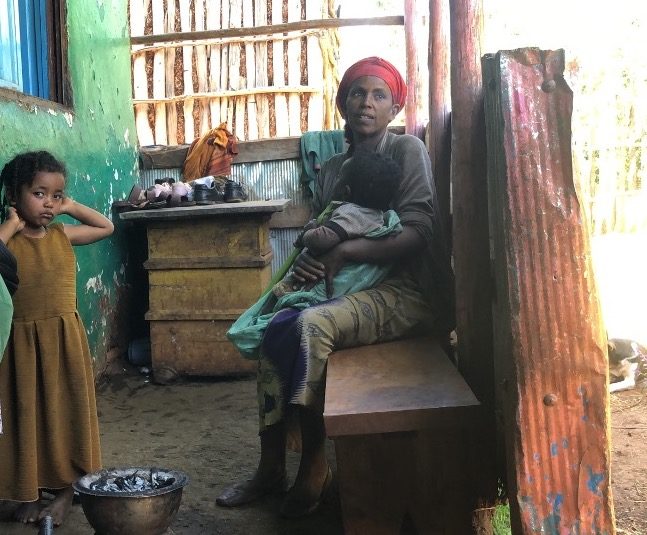Warren Dick, a soil scientist and retired Ohio State researcher, and his team are making progress on building an agricultural university and training center to teach Ethiopia's farmers about no-till and improve food security in the country.
Dick serves as the president and director of the Bethel Agricultural Association, a faith-based nonprofit teaching Ethiopian farmers how to implement no-till and conservation agriculture on their land.
In October, he led a team to Ethiopia for a training workshop, and the group was met with great encouragement. During the workshop, the group visited two farm families and introduced the project to American and Canadian Embassy officials. They also visited the Ethiopian Biotechnology Institute, whose general director is a member of the Bethel Environmental and Agricultural Board in Ethiopia, and got information about future needs for the analytical laboratory.
Locals are supportive of Bethel's efforts to build support in Woliso, where the project is located.
"We have involved Ethiopian farmers, local leaders and people at some of the highest levels of government," Dick says. "This, I was told, bodes well for the long-term success of our project to create an educational institution that teaches basic principles of sustainable agriculture, demonstrates more efficient food production systems, creates agricultural business entrepreneurs and encourages young people to take responsibility for the development of their own country."
Bethel is working to raise $69,000 during the holiday season and beyond to complete the buildings that already have foundations. Dick says a shortage of cement in Ethiopia and increased costs of building supplies have escalated the price of constructing the buildings over the initial estimates. The focus is to finish the analytical chemistry lab, which farmers and professionals in the area see as a priority project.
"The farmers felt they were managing their land and crops blindly," Dick says. "They have little information about the kinds and amounts of fertilizers most needed to enhance crop production."
A container of lab equipment is on its way to Ethiopia, but the group still needs funds to build lab benches, obtain pure water, create drying and storage space for soil samples, and more. They're also hoping to raise funds to hire an agricultural expert to be the farm manager in Woliso ($20,000 per year); buy a motorcycle for the farm crew in Woliso ($2,500); buy furnishings for the offices, guest house, kitchen and latrines that are currently being built ($22,000); and pay for construction of a demonstration fish production pond ($5,000).
Other projects on Bethel's ambitious 2023 project list include drilling a water well, creating research and demonstration plots on the Bethel project land, hosting the annual training workshop, and creating proposals related to conservation agriculture and agroforestry to submit to funding agencies.
"In the soil under a forest canopy, there exists a vast network of fungi that communicate with each other to protect the trees that provide them with food," Dick says. "These fungi, in turn, make nutrients and water in the soil more available to the trees.
"This seems to me an apt description of the work of Bethel Agricultural Association in Ethiopia. While the workshops, buildings and demonstration plots are all visible, they would not be possible without a strong base provided by people like you. Your prayers and gifts, combined with what God has given me and others, are what make things happen."
Visit Bethel Agricultural Association's website to learn more about the project and make a donation. Anyone interested in joining Dick and his team on a visit to Ethiopia should email him at baa@bethelagriculture.org.
Related Content
Which Countries Have the Most No-Till Acres?
The No-Till Passport series is brought to you by Martin Industries.
Since 1991, Martin Industries has designed, manufactured and sold leading agriculture equipment across the U.S. and Canada. Known for Martin-Till planter attachments, the company has expanded to include a five-step planting system, closing wheel systems, twisted drag chains, fertilizer openers and more in their lineup. Their durable and reliable planter attachments are making it possible for more and more farmers to plant into higher levels of residue.








